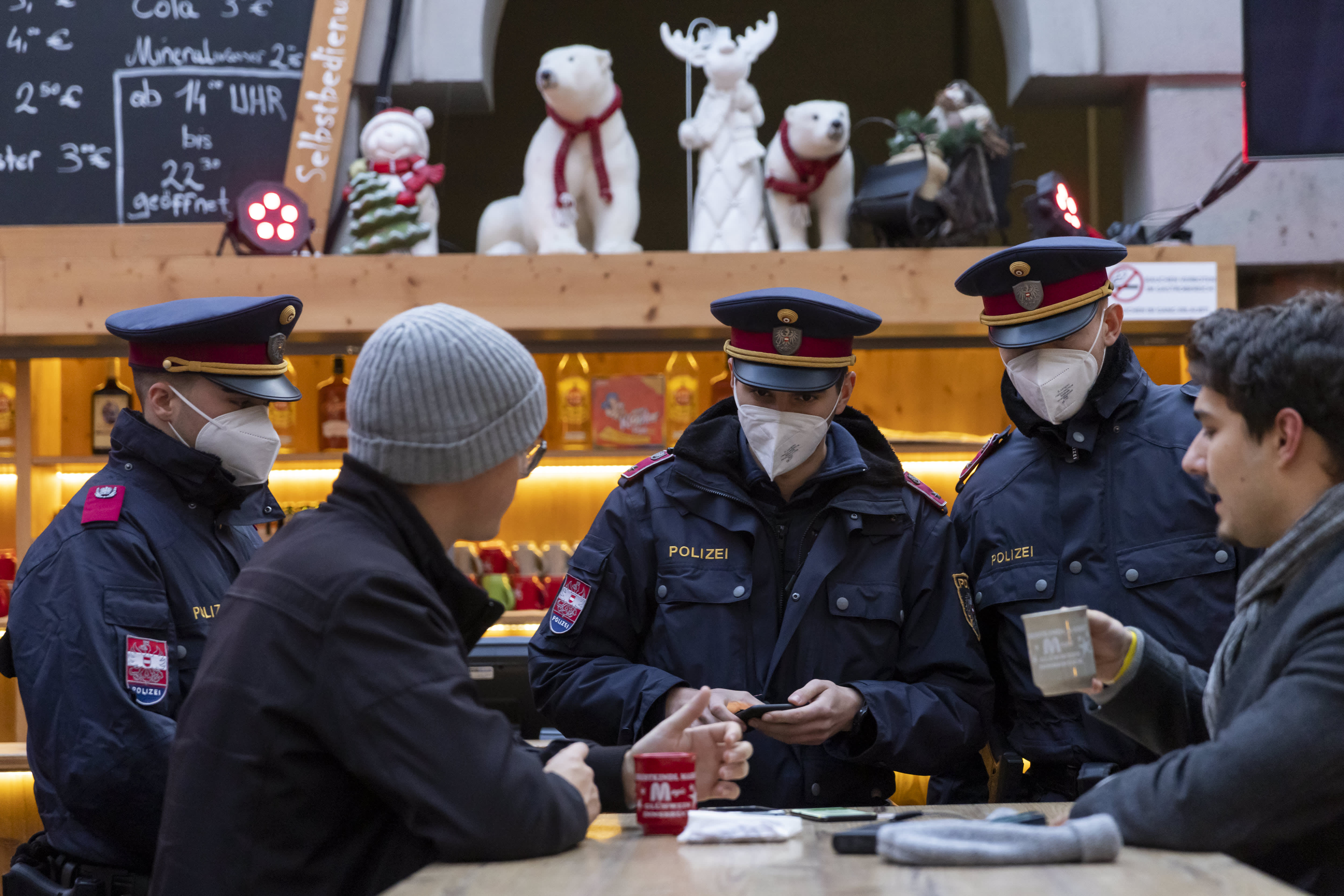Austria has imposed fresh lockdown measures on around 2 million unvaccinated people, with individuals facing fines if they fail to comply with the rules.
Those who are not fully vaccinated against Covid-19 have been back under lockdown since Monday, with federal police stopping people in public places to check their vaccination status.
Unvaccinated people who breach the lockdown rules face fines of up to 500 euros ($567), and anyone who refuses to comply with vaccination status checks could be fined 1,450 euros.
The fresh restrictions apply to everyone over the age of 12 who has not had two doses of the vaccine. People who have recently recovered from the virus are exempt from the restrictions.
Full proof of vaccination is required to visit public places like restaurants, hair salons and Christmas markets. In Vienna, children over the age of six will need to show a negative Covid test result to be permitted entry into these public places.
Only immunizations approved by Europe’s medical regulator – the Pfizer–BioNtech, Oxford-AstraZeneca, Johnson & Johnson and Moderna vaccines – will be accepted by Austrian authorities when it comes to proving vaccination status. Immunization greatly reduces the risk of hospitalization and death.
Over the weekend, new cases of the virus in Austria reached an all-time high of 13,152 in a single day, according to data from Johns Hopkins University. On Monday, 11,889 the country recorded new infections.
Around 65% of Austria’s population is fully vaccinated, giving the country the second-lowest vaccination rate in Western Europe after Liechtenstein.
Announcing the fresh lockdown restrictions at a press conference on Sunday, Austrian Chancellor Alexander Schallenberg said the rules would be “monitored very consistently and sanctioned” by police officers.
“The coronavirus situation in Austria is serious and a fourth wave is just catching us in full severity. The number of new infections in Austria is higher than it has ever been before,” he told reporters. “The only way to break this vicious circle of the pandemic is vaccination.”
Interior Minister Karl Nehammer said on Twitter on Tuesday that on Monday alone, around 15,000 police checks were carried out across Austria.
“About 120 violations were found and punished,” he said, adding that the public had shown a high level of cooperation with the authorities.
Despite lawmakers’ conviction that the Austrian police are on hand to ensure the lockdown is complied with, the policy has been criticized as difficult to enforce.
Unvaccinated people are still permitted to leave their homes for several reasons, such as grocery shopping, traveling to work provided they test negative for the virus, or to take part in religious practices.
The lockdown is also facing resistance from Austria’s third-biggest political party, the right-wing Freedom Party, which has called the move “a corona apartheid system” and made plans to protest against the restrictions in Vienna on Saturday.
The party’s leader, Herbert Kickl, said on Facebook on Monday that he had tested positive for the coronavirus and would be in quarantine for the event.
